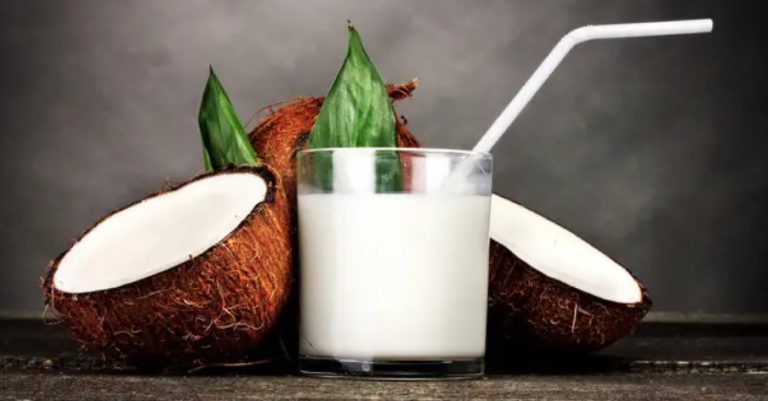Due to their high sugar content, soft drinks are anything but healthy. But what happens if we really drink Cola, Fanta, Sprite & Co. every day? We show what drinking lemonade does to your health.
Cola, Fanta, Sprite and Co. are among the most popular soft drinks worldwide. For many, the soft drinks are a little luxury that you treat yourself to from time to time. But for some, the sugary drinks are firmly integrated into everyday life. Coca-Cola is one of the most popular soft drinks. But how does our body react to the daily consumption of the caffeine-containing pick-me-up?

Drinking soft drinks every day: what is actually in cola?
Even as a child, it is made clear to you that soft drinks are not particularly healthy. But what was actually in Cola? A look at the nutrient table reveals the above-average sugar content. With around 10 to 15 percent sugar and around 42 calories per 100 grams, cola is a real calorie bomb. The values for other soft drinks are also in a similar range.
In addition to the large amount of sugar, cola also contains caffeine and the acidifier E338. E338 stands for phosphoric acid.
The additive provides the sour taste. Other soft drinks such as Fanta or Sprite use the acidifier citric acid (E330).
1. Soft drinks damage teeth
First of all, the obvious: We are taught from an early age that too much sugar is bad for our teeth. Harmless oral bacteria feed on sugar and excrete acid as a metabolic product.
The acid in the additive E338, which is contained in cola, can attack tooth enamel after just a few sips.
2. Blemishes caused by too much sugar
An unhealthy and sugar-heavy diet is not only reflected in our waist gold, but can also be felt on our skin. Skin blemishes such as pimples or acne are often associated with high blood sugar levels.
It has been scientifically proven that young men with skin problems have, on average, higher blood sugar levels than men without skin changes.
So if you drink a soft drink every day, you run the risk of raising your blood sugar level and thus also the risk of pimples, acne and the like.
3. Soft drinks are fattening
Bad teeth, bad skin – all the sugar in lemonade and soft drinks is poorly absorbed by the body. The weight also suffers from the sugary drinks. With 42 kilocalories per 100 milliliters, cola is one of the unhealthiest drinks of all. It does not contain any vitamins or minerals and the body needs a long time to break down the many calories.
Other soft drinks also have high calorie values. Probably the healthiest alternative is water. If the taste is too boring for you, you can switch to unsweetened tea or give your mineral water a delicious taste with freshly cut fruit.
Sugar-free soft drinks also sound tempting at first: They contain fewer calories and you don’t have to worry about the harmful properties of sugar. But the low-calorie drinks are far more harmful than we think. Our intestines in particular suffer from this.
4. Caffeine promotes cardiovascular disease
Cola is also often called a pick-me-up. This is due to the caffeine it contains. If you consume too much coffee or cola, you also exceed the maximum daily recommended amount of caffeine (400 mg per day). This can increase blood pressure.
High blood pressure is considered a risk factor for numerous diseases such as heart attacks, cardiac insufficiency and strokes.
Those who like to drink coffee should avoid energy drinks and caffeinated beverages. A combination of both can quickly lead to an overdose, which can cause long-term damage to health.
5. Bad for the bones
Coke, in particular, can also damage your bones. Why is that? Cola contains phosphoric acid (E338).
If this is taken in large quantities, the absorption of calcium in the bones can be inhibited and bone resorption is promoted.
Calicum is an important part of bone formation and crucial for our bone density. Too little calcium can also be the trigger for the bone disease osteoporosis.

Conclusion on Cola, Fanta and Co.: Enjoy soft drinks in moderation instead of in bulk
Bad teeth, bad skin, bad for the bones, harmful for the cardiovascular system and bad for the body weight: It is best to stop consuming soft drinks and cola at all – at least that’s what it sounds like. However, you should note that all of the above points relate to excessive consumption of sugary soft drinks. Everyone can safely drink a glass of cola in between without getting caries directly. The motto here is: Enjoy soft drinks in moderation instead of in bulk.
As unhealthy as the consumption of cola may be, in other areas the lemonade turns out to be a real all-rounder – for example as a de-icer, toilet cleaner or limescale remover.




